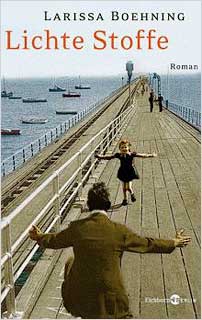review
Three generations of one family are described in this rewarding and intelligent novel. The central character is Nele Niebuhr, a young shoe designer from Hamburg. Then there are her mother and father, Evi and Bernhard, who live in the family home in the city and whom crisis strikes when Bernhard is made redundant from his job but is too ashamed to admit this to his wife – or even himself – and so pretends to go to work at 7:35 a.m. every day of the week, as he would have done before. Finally there is Gudrun, Evi’s mother and Nele’s grandmother, who died a few years previously in Berlin and who in a sense provides the springboard for the whole plot when Nele listens to a cassette she recorded not long before her death. In this she reveals that, at the end of the Second World War, and in order to get food for herself and her starving mother, she embarked on a brief liaison with a black American soldier in Berlin, as a result of which dark-skinned Evi was conceived. Gudrun concealed her condition from the GI, who soon vanished without trace, but not before trying to make her a present of a looted Degas painting which she felt unable to accept. Nele, having listened to the tape, comes to a decision. Instead of travelling with her boyfriend to New York she will set out on a journey of her own, to track down both her grandfather and the painting.
There is much perceptiveness and depth in this novel: in the first section the contrast between the everyday lives of Evi and Bernhard and the complexity of their inner states, à la Ian McEwan; and again, later, the latent antagonism between Evi and Gudrun. And as an interesting sub-plot there is a good deal of detail about the fate of paintings and the significance of the illegal art trade during and after the war. ‘Heimat’, race, paternity, disillusionment, travel, desire – the story explores a whole range of big themes. But, above all, this is a character-based novel. The portraits are warm and personal and a kind of reconciliation is evident at the end – although, as in life, this is obviously to remain imperfect.



All recommendations from Autumn 2007